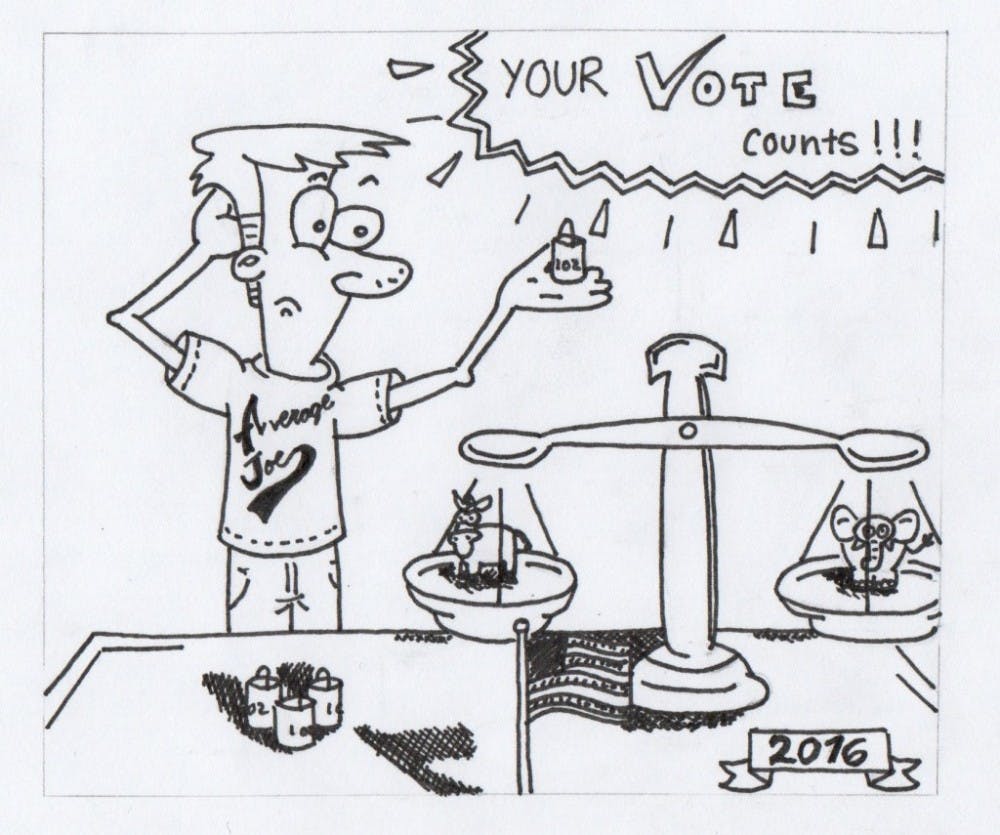It feels like no one believes their vote actually counts. If someone lives in a blue state and votes red, the candidate they want to win doesn’t have a chance, and if someone lives in a blue state and votes blue, why should it matter if they join the hoards of people all voting for the same candidate?
To an extent, that sort of thinking is true. In a presidential election, most states are pretty much predetermined as to whether the electoral votes are going Democrat or Republican. Even in a swing state, the result often doesn’t come as a surprise.
Even in a swing state, the result often doesn’t come as a surprise.
However, in every election there is so much more at stake. In addition to presidential candidates and members of Congress, we also vote for local politicians, bills and propositions that will likely have more effect on our daily lives than any choice of president. It might be that Trump is dominating the media, but in the presidential primaries he’s only one item on the ballot.
It’s hard to stay informed about the governments of our home states when most of us spend three-quarters of the year away from the action, and it’s even harder to be aware of the local politics within county or city lines. But that’s where your vote really matters — that’s where you can have the biggest impact.
Pay attention to who is running for school board. The kids are the future, right? So everyone should take an interest in who controls what they learn.
Pay attention to state senate elections and city council elections. Those are the people in charge of parks, infrastructure and local taxes.
With all that in mind, pay attention to the bigger game because your vote will matter in the presidential primary, and it will matter in the general election. According to the United States Election Project and data gathered by the Census Bureau, voters ages 18 to 29 have consistently been the least likely age bracket to turn out to vote, as measured since 1984. If presidential elections had a larger turnout of young voters, that could drastically change the results.
According to the Pew Research Center, about two-thirds of young voters identify as or lean Democrat. If you fall into this category, your vote could make a huge difference against the more conservative baby boomers, who are nearly three times more likely to vote. If you’re among the minority that leans more conservative, your vote matters too. You need to stand up for what you believe in, even if that means going against the grain, and let politicians know that even if you’re a minority in your age group you still deserve to be represented.
Your vote matters. It matters close to home, and it matters nationwide. Take advantage of a political system that gives you a say in who runs our country. Look up when your home state’s primary is (if it hasn’t happened yet) and register for an absentee ballot if you won’t be home to vote in person. The deadline to register to vote varies by state, but in most it’s 30 or fewer days before the election. If you want to register with Maryland, you have until April 5 to send in your paperwork or fill out the nifty online registration form for the primary on April 26.
Unless you want every political decision to be made by 65-year-old conservative white people, get out and vote.
Gillian Lelchuk is a sophomore Writing Seminars major from Seal Beach, California.





